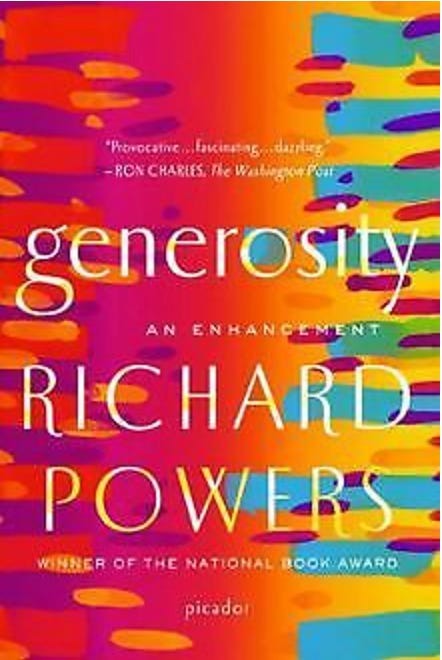Welcome aboard The Bus!
ORIGINALLY PUBLISHED (1.34) 1 AUGUST 2022
The Stop
In Aristotelian ethics,1 eudaemonia2 - often translated as ‘happiness’ but better understood as the ‘condition of human flourishing or of living well’ - is ‘the good’ or ‘the good life’ for human beings. Living purposefully to attain this state is, according to Aristotle, to live as ‘best a human being can’ by achieving goals and generally doing well in life. Consequently, eudaemonia is the only ‘good’ that is desirable for its own sake, rather than being a means to an end.3
One problem with understanding eudaemonia in the 21st century is that, while it is often translated as ‘happiness,’ Aristotle’s use of the word is profoundly different to the way we use it. In our worldview, happiness is understood as a psychological state - one feels happy, is happy, isn’t happy, wants to be happy, etc. However, eudaemonia is not a state of mind but rather the active state of living with the goal of realising the ‘full potential’ of a given human life. Rather than understanding ethics as a response to the question ‘what should I do,’ Aristotle asks ‘how should I live?’ While superficially this appears selfish, he further defines eudaemonia so that it is ‘bound up with living what we would call a morally good life.’ In order to flourish - in order to attain eudaemonia - one must do so within a community. Consequently, a person’s happiness is ‘inseparable from the people and community’ with which they live - and it is ‘inconceivable’ to Aristotle that anyone could attain eudaemonia by ‘exploiting or hurting that community.’
For Aristotle, eudaemonia is an objective judgement about a human life. If someone claims to be happy or not, it is impossible to really know if they are telling the truth or even if they are correct in their assessment. But, in the Aristotelian use of the word, to say ‘someone is or was eudaemon is to make an objective judgement about their life as a good human life.’ Such a judgement is not about a person’s state of mind, ‘nor is it a judgement the subject themselves has any special authority over.’ Furthermore, as eudaemonia ‘doesn’t come and go as happiness (in the usual sense) can,’ for a life to be judged eudaemon, it must be evaluated as a whole. Eudaemonia is the achievement of a well-lived, complete life: ‘For one swallow does not make a spring, nor does one day; nor, similarly, does one day or a short time make us blessed and happy.’4
The Detour
Today’s Detour is to an article in VQR about Mozart, who - in 1784 - bought a singing starling which he named Vogel Staar. He lived with the bird for three years - which happened to be his most productive. It’s a fascinating story about the bonding of two very different brains.
[Driver’s Note: Though available when originally published, this article has since become paywalled. Nevertheless, there are ways around such impediments.]
The Recommendation
Today’s book is Generosity: An Enhancement, a 2009 novel by the always-engaging Richard Powers.5 The novel - considered one of Powers’s most accessible - concerns an Algerian refugee who has a genetic predisposition for extreme happiness. And this causes some to want to find the source.
From the dust cover: When Chicagoan Russell Stone finds himself teaching a Creative Nonfiction class, he encounters a young Algerian woman with a disturbingly luminous presence. Thassadit Amzwar’s blissful exuberance both entrances and puzzles the melancholic Russell. How can the refugee from perpetual terror be so happy? Won’t someone so open and alive come to serious harm? Wondering how to protect her, Russell researches her war-torn country and skims through popular happiness manuals. Might her condition be hyperthymia? Hypomania? Russell’s amateur inquiries lead him to college counsellor Candace Weld, who also falls under Thassa’s spell. Dubbed Miss Generosity by her classmates, Thassa’s joyful personality comes to the attention of the notorious geneticist and advocate for genomic enhancement Thomas Kurton, whose research leads him to announce the genotype for happiness. Russell and Candace, now lovers, fail to protect Thassa from the growing media circus. Thassa’s congenital optimism is soon severely tested. Devoured by the public as a living prophecy, her genetic secret will transform both Russell and Kurton, as well as the country at large. What will happen when science identifies the genetic basis of happiness? Who will own the patent? Do we dare revise our own temperaments? Funny, fast, and finally magical, Generosity celebrates both science and the freed imagination. In his most exuberant book yet, Richard Powers asks us to consider the big questions facing humankind as we begin to rewrite our own existence.
Here is a review from the New York Times: Why is She Smiling (NYT)
And another from The Guardian: Generosity by Richard Powers (Guardian)
The Sounds
Some tenuously connected songs today: Bernard Hermann’s ‘Twisted Nerve’ (1968), ‘Trippin’ on a Hole in a Paper Heart’ by Stone Temple Pilots (1996), ‘Happy Together’ by The Turtles (1967), REM’s ‘Shiny Happy People’ (1991) and ‘Happiness is a Warm Gun’ by The Beatles (1968). It’s a fun list - enjoy!
The Thought
Today’s Thought is a ‘quotation’ from Aristotle,6 arguably the first ethicist:
“A friend to all is a friend to none.”
If you have a thought on this Thought - or any part of today’s issue - please leave a comment below:
And that’s the end of this stop - I hope you enjoyed a brief diversion from your regular journey!
Thanks to everyone who subscribes - I genuinely appreciate your interest and support. If you like The Bus, please SHARE it with a friend or several hundred.
If you haven’t climbed aboard, please do!
Until the next stop …
Aristotle was the first to write an ethical treatise - and he wrote two - the Eudemian Ethics and the Nicomachean Ethics. Previously, ethics had not been considered a ‘distinct subject’ and while in various places Plato touches on ethical issues, he never examines systematically the ‘nature of happiness, virtue, voluntariness, pleasure, or friendship.’ Though I haven’t taught it formally in several years, ethics was what first got me into philosophy. Sources for today’s Stop include Jones, Gerald, Daniel Cardinal, and Jeremy Hayward. Moral Philosophy: A Guide to Ethical Theory. London: Hodder Murray, 2006, Lacewing, Michael. Philosophy for A2. London: Routledge, 2015, Eudaimonia (Britannica) and Aristotle's Ethics (Stanford).
Generally pronounced ‘you dee moe-nee-ah; see: Eudaemonia
All other goods are means to ends: pleasure, health, honour, etc. are all ‘goods,’ but are ‘sought because they promote well-being, not because they are what well-being consists in.’ In Aristotle’s understanding, eudaemonia is the highest end - and is thus an end in itself.
Nicomachean Ethics, Book I, Chapter 7.
Powers is an outstanding novelist and while Generosity is good, my favourites of his are Gain, Galatea 2.0, The Time of Our Singing and The Overstory. I highly recommend him. For more information, see: Richard Powers
Despite the quote’s online ubiquity, Aristotle never said this with such precision - though the sentiment is certainly present in Book 9, Chapter 10 of the Nicomachean Ethics: ‘Those who have many friends and treat everyone as close to them seem to be friends to no one, except in the way fellow citizens are to friends; these people are regarded as ingratiating.’ Various search results attribute the current quote to 17th century texts, including a translation of Ovid. If you’re interested, see: English/Stackexchange




